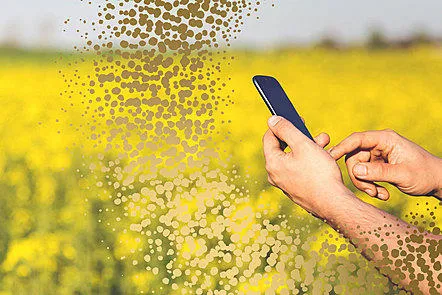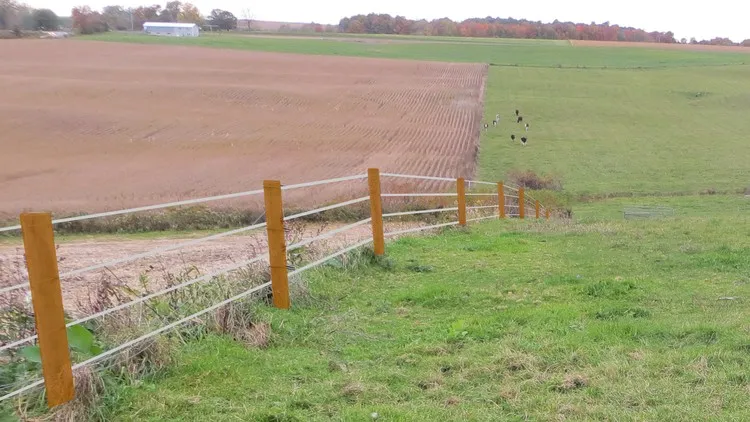
Food Chemistry 
This Food Chemistry course provides an introduction to the science of food chemistry and nutrition. It covers topics such as colorimetry, chromatography, electrophoresis, spectrophotometry, spectroscopy, atomic absorption spectrophotometry, carbohydrates, lipids, sources of fat and oil, proteins, water and fat soluble vitamins, dietary minerals, enzymes, flavours, food pigments, quality control and management, liquid and solid waste treatment, browning reactions, and new product development. Through this course, students will gain knowledge and skills in food chemistry and nutrition. ▼
ADVERTISEMENT
Course Feature
![]() Cost:
Cost:
Free
![]() Provider:
Provider:
Swayam
![]() Certificate:
Certificate:
No Information
![]() Language:
Language:
English
![]() Start Date:
Start Date:
Self Paced
Course Overview
❗The content presented here is sourced directly from Swayam platform. For comprehensive course details, including enrollment information, simply click on the 'Go to class' link on our website.
Updated in [May 25th, 2023]
Food Chemistry is a course that provides an overview of the chemical components of food and their effects on nutrition. During the course, students will learn about the introduction to food chemistry, food and nutrition, colorimeter, chromatography, electrophoresis, spectrophotometer, spectroscopy, atomic absorption spectrophotometer, carbohydrates, lipids, sources of fat and oil, proteins, water soluble vitamins, fat soluble vitamins, dietary minerals, water, enzymes, flavours, food pigments, quality control and management of liquid waste, trickling filters, value addition to fruits and vegetables through processing, treatment methods for solid waste, biological composting, drying and incineration, browning reactions in food, and new product development.
In Week I, students will be introduced to food chemistry and food and nutrition, and will learn about the use of a colorimeter and chromatography. Week II will focus on electrophoresis, spectrophotometer, and spectroscopy, as well as the use of an atomic absorption spectrophotometer. Week III will cover carbohydrates, and Week IV will cover lipids. Week V will cover sources of fat and oil, and proteins. Week VI will cover water soluble vitamins and fat soluble vitamins. Week VII will cover dietary minerals, water, and enzymes. Week VIII will cover flavours and food pigments. Week IX will cover quality control and management of liquid waste, trickling filters, and value addition to fruits and vegetables through processing. Week X will cover treatment methods for solid waste, biological composting, and drying and incineration. Week XI will cover browning reactions in food, and new product development.
[Applications]
The application of this course in Food Chemistry can be seen in various areas. It can be used to understand the chemical composition of food, analyze the nutritional content of food, and develop new food products. It can also be used to understand the effects of food processing on the quality of food, and to develop methods for controlling and managing liquid and solid waste. Additionally, it can be used to understand the browning reactions in food, and to develop value-added products from fruits and vegetables. Finally, it can be used to understand the role of enzymes, vitamins, and minerals in food, and to develop methods for improving the flavor and color of food.
[Career Paths]
1. Food Chemist: Food chemists are responsible for researching and developing new food products, analyzing food ingredients, and ensuring food safety. They use their knowledge of chemistry, biology, and nutrition to create new products and improve existing ones. They also work to ensure that food products meet government regulations and industry standards. Developing trends in this field include the use of new technologies to improve food safety and the development of healthier food products.
2. Food Technologist: Food technologists are responsible for developing new food products and improving existing ones. They use their knowledge of food science, nutrition, and food processing to create new products and improve existing ones. They also work to ensure that food products meet government regulations and industry standards. Developing trends in this field include the use of new technologies to improve food safety and the development of healthier food products.
3. Food Safety Inspector: Food safety inspectors are responsible for ensuring that food products meet government regulations and industry standards. They inspect food production facilities, test food samples, and investigate food-related complaints. Developing trends in this field include the use of new technologies to improve food safety and the development of new regulations to protect consumers.
4. Food Scientist: Food scientists are responsible for researching and developing new food products, analyzing food ingredients, and ensuring food safety. They use their knowledge of chemistry, biology, and nutrition to create new products and improve existing ones. Developing trends in this field include the use of new technologies to improve food safety and the development of healthier food products.
[Education Paths]
1. Bachelor of Science in Food Chemistry: This degree program focuses on the chemical composition of food and the physical and chemical changes that occur during processing, storage, and preparation. Students learn about the nutritional value of food, food safety, and food regulations. They also learn about the chemistry of food additives, preservatives, and flavorings. This degree program is becoming increasingly popular as the demand for food scientists and technologists grows.
2. Master of Science in Food Science and Technology: This degree program focuses on the science and technology of food production, processing, and packaging. Students learn about food safety, nutrition, and food regulations. They also learn about food chemistry, food engineering, and food microbiology. This degree program is becoming increasingly popular as the demand for food scientists and technologists grows.
3. Doctor of Philosophy in Food Science and Technology: This degree program focuses on advanced research in food science and technology. Students learn about food safety, nutrition, and food regulations. They also learn about food chemistry, food engineering, and food microbiology. This degree program is becoming increasingly popular as the demand for food scientists and technologists grows.
4. Master of Science in Food Chemistry: This degree program focuses on the chemical composition of food and the physical and chemical changes that occur during processing, storage, and preparation. Students learn about the nutritional value of food, food safety, and food regulations. They also learn about the chemistry of food additives, preservatives, and flavorings. This degree program is becoming increasingly popular as the demand for food chemists and technologists grows.
Course Provider

Provider Swayam's Stats at AZClass
Discussion and Reviews
0.0 (Based on 0 reviews)
Explore Similar Online Courses

Linux command lines and administration in 2 days

Microsoft Professional Capstone: Internet of Things

Python for Informatics: Exploring Information

Social Network Analysis

Introduction to Systematic Review and Meta-Analysis

The Analytics Edge

DCO042 - Python For Informatics

Causal Diagrams: Draw Your Assumptions Before Your Conclusions

Whole genome sequencing of bacterial genomes - tools and applications

Food Microbiology

Agricultural Economics - Online Course - FutureLearn


Start your review of Food Chemistry